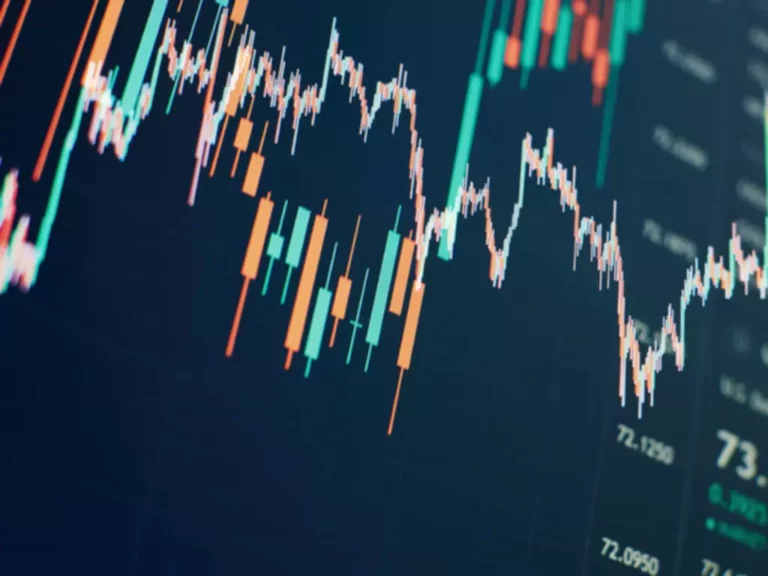Content
Cloud computing is increasingly being adopted by institutional traders for its scalability and cost-effectiveness. Cloud-based trading platforms offer flexibility and enhanced collaboration among trading teams, https://www.xcritical.com/ enabling institutions to scale their operations without significant infrastructure investments. Institutional trading platforms significantly enhance trading efficiency by automating many aspects of the trading process. From order execution to risk management, these platforms streamline operations, reducing manual intervention and the risk of errors.
Retail Trading Advantages in the Marketplace
The majority of traders on what is institutional trading the stock market are retail traders like you and me. Although we outnumber institutional traders, they control a significant portion of the total assets traded in financial markets. Institutional and retail traders play distinct but significant roles in the financial markets. While institutions have advantages such as access to more financial instruments and extensive resources, retail traders have the flexibility and freedom in trading decisions. However, the challenges confronting institutional algo traders are not insignificant.

TRADING ROOMS AND LIVE STOCK TRAINING

This is why Institutions are the most important power Decentralized autonomous organization force for the supply and demand of the markets. Some well-known institutional trading platforms include Bloomberg Terminal, Reuters Trading for Exchanges (RTEx), and Eikon by Refinitiv. These platforms provide a comprehensive suite of tools, including market data, analytics, news, and order management systems, to support institutional trading activities. Because of their large trading volumes, institutional investors may have a strong impact on the prices and liquidity of the markets. Very often, this sector bases its decisions about trading on extensive research and analysis; therefore, their investment outcome will be less volatile than in the case of a single investor.
An Overview of Trading Entities
However, it clarifies that the little guy may still beat hedge funds, though more significant in size and often perceived as superior. Since the pandemic, retail traders’ voices have been heard louder, and that impact can be felt almost daily. Thanks to the rise of various platforms, they have access to many financial instruments, data, and asset types to compete with institutional traders. The gap is slowly narrowing, but that doesn’t mean all retail traders succeed in their stock market journey. Examples include hedge funds, mutual funds, investment banks, endowment funds, pension funds, and insurance companies.
Large amounts of capital and trading volume turn into revenue for the service provider. And often, the more considerable the hedge fund, the more reason there is to provide it with the absolute best support services to have the ability to keep working with them. The dynamics between retail and institutional trading can have a profound impact on financial markets, as evidenced by recent events such as the GameStop saga in early 2021.

Institutional traders are major players in the financial markets, consisting of entities like hedge funds, mutual funds, pension funds, endowments, and investment banks. These organizations trade large amounts of securities, significantly influencing market dynamics due to the sheer volume and scale of their trading activities. Typically, institutional traders differ from retail traders, who are individual investors trading with their personal funds. Institutional traders manage securities for financial entities such as pension funds and mutual funds, trading large volumes with access to a broader range of assets and advanced market research.
The retail traders have limited involvement when it comes to investing in large-cap securities. Retail traders have the objective of maximising their money by earning profits from different investment avenues. Some are saving up for retirement, while others are looking to grow their wealth. They make their investment decisions based on personal research, tips from financial advisors, and on the trending securities in the market. It is worth pointing out that there is often a reason why regulations exist around these securities. High risk is often correlated with the chance for higher returns, but high-risk investments should always be considered with caution.
The ability to invest in smaller, less liquid markets is not the only advantage of working with smaller capital amounts. Another benefit is that it’s doubtful that a retail trader will move the market. While a higher price may sound good in theory, if the price rises rapidly, it can increase the fund’s entry price, reducing future returns. Retail traders, also known as individual traders, trade securities with their own money. They can trade the most popular securities, including stocks, bonds, options, and futures, but they do not typically have access to IPOs and more complex investment vehicles.
In addition, institutional traders have greater opportunities to diversify securities and retrieve information without difficulty, and real-time data is more readily available to them. It is important to note that a lot of people say retail trading has various disadvantages. In many cases, the main perks are considered to be the lack of knowledge and experience individual investors have while trading in the market. Sometimes they don’t have enough discipline and skills to research the investments.
- Funds, including hedge funds, usually have an investment mandate, but retail traders do not.
- Algorithms are designed to recognize market patterns and make split-second decisions, thus optimizing trading efficiency by executing trades at speeds and accuracy levels beyond human capacity.
- Sometimes debate about FX retail trading vs institutional is getting too harsh, however, it is very important to note that each one is an independent opportunity with different advantages and disadvantages.
- We’ve added some major advancements this year that includes 3 unique features, exclusive to our platform.
- Market-bulls.com does not accept responsibility for any loss or damage arising from reliance on the site’s content.
To conclude, institutional traders are not taking over the stock market, at least not in the US. They represent a significant percentage (80-85%) of the trading volume and money moving on the stock market, but retail traders also have their word to say. Bloomberg Terminal is one of the most widely used institutional trading platforms. It offers an all-in-one solution for real-time market data, news, financial analysis, and trading execution. Bloomberg Terminal is highly favored by financial professionals for its extensive data coverage, trading functionalities, and deep analytics capabilities.
Such trades usually occur through private negotiation or through a dedicated block trading desk. This is commonly seen that institutional investors normally invest for a longer horizon of time as compared to the retail investors. Institutional investors enjoy better access to trade technology, data, and sophisticated research than the individual investors do. In the world of securities trading, institutional investors are the heavyweights.
Retail traders often invest in small-cap stocks, which have lower price points, enabling them to diversify their portfolios across various securities. Delving into the financial markets unveils a dynamic landscape where two predominant groups exert considerable influence—institutional traders and retail traders. The pivotal roles they play, though seemingly parallel, encompass divergent strategies, trading volumes, and impact. Institutional traders, the heavyweights of the marketplace, steer the financial course for entities such as mutual funds, pensions, and insurers.
You accept full responsibilities for your actions, trades, profit or loss, and agree to hold The Forex Geek and any authorized distributors of this information harmless in any and all ways. Each day we have several live streamers showing you the ropes, and talking the community though the action. What we really care about is helping you, and seeing you succeed as a trader. We want the everyday person to get the kind of training in the stock market we would have wanted when we started out. The Bullish Bears trade alerts include both day trade and swing trade alert signals.
